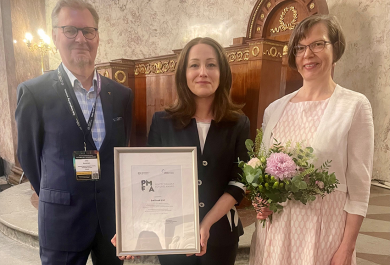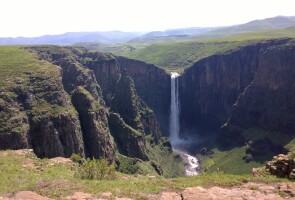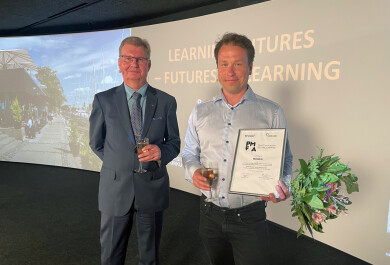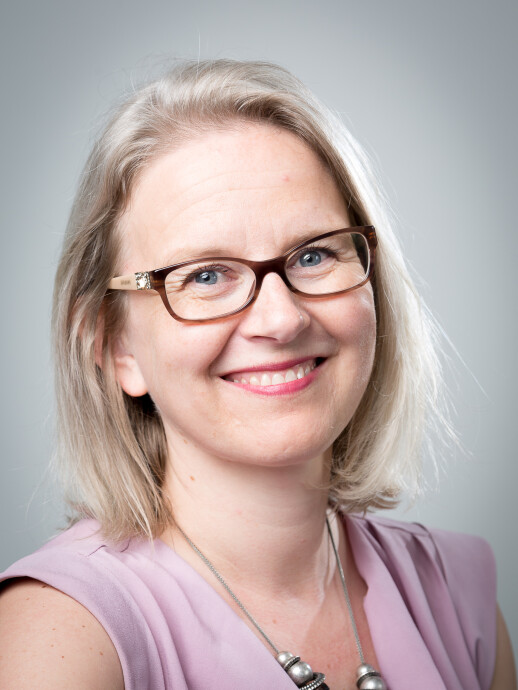Sustainability has a central role in the Strategy of the University of Turku, and it is embedded into the research and teaching activities of Turku School of Economics. The very roots of Turku School of Economics lie on respecting academic freedom, daring new openings, and collaboration between disciplines.
We collaborate with the Finnish and international impact investment networks such as FIBS, ABIS, PRME, GRLI, NBS, and Oxygen 2050.
Our Areas of Expertise in the Research on Sustainable Future
Finland Futures Research Centre has participated in the research, education, and societal interaction related to sustainable development for over twenty years. The research, education, and development projects of the Centre are interdisciplinary and international. Sustainable energy systems, climate change mitigation, preparation and adaptation, resource efficiency, and sustainable and just bioeconomy are some of its key topics. The researchers at the Centre are interested in the sustainability of the everyday activities of people, particularly in the consumption of sustainable food and climate-friendly energy. Sustainable development brings together complex problems and emphasises their systemic interconnectedness. This is why we are looking for solutions both on the level of individuals and communities as well as on the level of societal structures, state, and economy.
> Research at Finland Futures Research Centre
Contact person: Juha Kaskinen
-
Futures within Planetary Boundaries: We work for sustainable energy systems and climate change mitigation, preparation, and adaptation. (Contact persons: Noora Vähäkari, Mika Korkeakoski)
-
Sustainability in Daily Lives: We participate in long-term research and development to promote everyday sustainability. (Contact person: Ira Ahokas)
-
Societal and Cultural Transformation to Solve Complex Problems: We conduct research on images of futures leading the transformation and we produce processes to support it. (Contact persons: Katriina Siivonen, Tuomas Kuhmonen)
-
Innovation, Technology, and Socio-Ecological Change: We participate in technology foresight research and development of methods of identifying radical emerging technologies and tools for evaluating them. (Contact persons: Mikkel Knudsen, Jari Kaivo-oja)
Turku School of Economics and the Department of Biodiversity Sciences of the University of Turku have received profiling funding from the Academy of Finland for a research opening which combines economics with the study of biodiversity.
Biodiversity and systemic transformation (BIODIFORM) aims at creating sustainable future solutions by combining the research of biodiversity of nature with the research of entrepreneurship and business. BIODIFORM belongs to one of the multidisciplinary themes of the University, “Biodiversity and sustainability”, and its responsible researcher is Professor Ilari Sääksjärvi. In addition to the Department of Biodiversity Sciences, the BIODIFORM collaboration also includes researchers from Turku School of Economics.
> University of Turku Receives Strategic Funding of €6.8 M in the Profi 6 Call
Contact person: Juulia Räikkönen
The Laboratory of Business Disruption Research emphasises multidisciplinary research, providing an open research platform for both academia and business. Our goal is to study the business disruption phenomenon and to develop new business models and concepts to support development of new, groundbreaking innovations, as well as strategies for enabling or surviving under disruption.
> Laboratory of Business Disruption Research (utu.fi)
> Laboratory of Business Disruption Research (disrupt.utu.fi)
Contact person: Taina Eriksson
The Future Ethics research group studies the ethical questions related to the development and use of information systems, largely focusing on the negative changes they cause and solutions for these problems, but also encouraging people to adopt positive modes of action such as using ethics as the basis of development and use of information systems. This is also reflected in the teaching the research group offers at Turku School of Economics and various other educational establishments.
Contact person: Kai Kimppa
Creating responsible data economy is one of the strategies of the European Union, emphasising strong protection of privacy while promoting the transfer of non-personal data in the single market area. Responsibility in the digital economy requires ethical, people-first, ecologically sustainable business conduct that takes into account the needs of different groups of people as well as reliable technology to back it up. This puts emphasis on responsibility, multidisciplinary approach, and future-oriented problem solving, which are all strategic strengths of Turku School of Economics and prerequisites for sustainable digital economy.
Contact persons: Jani Koskinen, Jukka Heikkilä
You can find the researches focusing on sustainability at Turku School of Economics through the Responsible Business Network (RBN). RBN features post-doctoral researchers and doctoral students from the areas of taxation, finance, marketing, management, supply chain management, international business, and entrepreneurship. RBN organises monthly research seminars.
Contact person: Katariina Koistinen
Examples of topical research projects
STYLE studies the prerequisites for sustainable growth through promoting everyday physical activity. The research group studies ways to induce the physical activity of different age groups in a way that changes the modal split towards walking and cycling and simultaneously brings about new business that supports active lifestyle.
The project supports the objective of the Ministry of Transport and Communications of increasing the joint share of walking and cycling of all transportation to 38 percent by the year 2030. The research topics of STYLE include management of traffic systems and promotion of activity, physical activity habits of people from different age groups, the fundamental motives and emotions behind people’s behavioural changes, and development of infrastructure designs and business opportunities that induce physical activity, among others.
The five-year (3+2) project started in January 2019, and is funded by the Strategic Research Council at the Academy of Finland.
> Healthy Lifestyles to Boost Sustainable Growth (STYLE)
Contact person: Petri Tapio
The study focuses on emotional and cognitive factors that either inhibit or advance consumers’ propensity to engage in physical activity and active transport on a habitual basis. The study focuses particularly on the modal split from using a car towards sustainable transport modes, walking and cycling. This information allows us to understand how individuals at different stages of life cycle integrate physical activities and different types of active transport modes in their everyday life. The study also provides behavioural information related to access, transport equity, and urban green space. The study is a part of the STYLE project; the five-year (3+2) research project is funded by the Strategic Research Council at the Academy of Finland.
> Lifestyle changes / STYLE (in Finnish)
Contact person: Birgitta Sandberg
Funded by the Strategic Research Council of the Academy of Finland, Circular Economy Catalysts: From Innovation to Business Ecosystems (CICAT2025) aims to facilitate the transition from linear economy to more sustainable circular economy. The project supports the aim of Finland to become a global pioneer in circular economy by 2025. The project is ongoing for 2019-2023. The consortium received altogether EUR 4.2 million in funding for the first three years of the project (2019-2021).
The consortium consists of Tampere University, University of Turku, University of Jyväskylä, University of Eastern Finland, Tampere University of Applied Sciences, and Turku University of Applied Sciences. The extensive and multidisciplinary consortium brings together expertise in technology, business, policy-making, the arts, linguistics, legislation, and stakeholder relations.
The project explores a wide range of circular economy catalysts that have the potential to accelerate the adoption of circular economy principles in society and markets. The catalyst of circular economy can include new type of processing technology, business or management model, law, encouraging language, or impactful image.
Close cooperation and discussion with institutions of higher education, companies, authorities, and communities are at the core of the project. In addition, many ministries, municipalities and other organisations as well as a strong international cooperation network are involved in the project.
The researchers from the University of Turku are studying agency in circular economy, business strategies, and the linguistic dimensions of circular economy.
Contact persons: Satu Teerikangas, Katariina Koistinen, Mira Valkjärvi (agency in circular economy, motivations of businesses), Paula Sjöblom & Ville Virsu (linguistic point of view on circular economy)
The Developing Inclusive & Sustainable Creative Economies (DISCE) project is set to study and enhance the growth, inclusivity and sustainability of the CCIs in the EU. DISCE was launched in January 2019 and will run until June 2022. DISCE investigates the relationships between higher education, skills development and creative work; emerging business models and entrepreneurship; possibilities for improved quantitative mapping; new ways to understand what the ‘growth’ of creative economies consists of and why such growth beyond traditional GDP is valuable. At the heart of the project is the question of how the creative economies of the future can be both inclusive and sustainable. Creative practitioners and policy makers will play a vital role in DISCE as both producers and users of new knowledge. Policy and stakeholder interaction that goes beyond the surface is fundamentally integrated throughout the activities of the project to maximise sustainability of the outcomes. Combining ten regional case studies with EU-wide quantitative mapping, the aim of DISCE, ultimately, is not only to understand the EU’s creative economies, but to help shape their future. The ten regions studied in DISCE are: Pori (Finland) and Lund (Sweden) in Northern Europe, Pecs (Hungary) and Liepaja (Latvia) in Eastern, Enschede (the Netherlands) and Leuven (Belgium) Central, L’Aquila and Treviso (Italy) in Southern Europe and Chatham and Dundee in the UK.
The project draws on the team’s highly interdisciplinary expertise. Department of Management and Entrepreneurship within the Turku School of Economics (TSE) of the University of Turku (UTU) is the coordinator of DISCE, Principal Investigator being professor Jarna Heinonen. The other research members of the consortium are the King’s College London (KCL) from the United Kingdom, the Gran Sasso Science Institute (GSSI) from Italy, and the Stockholm School of Economics (SSE) in Riga, Latvia. The consortium is completed with two stakeholder partners, namely a Belgian based non-profit Culture and Media Agency Europe (CUMEDIAE) and the European network of non-governmental cultural centres based in Sweden Trans Europe Halles (TEH), who together assume both the communications and stakeholder engagement within the Cultural and Creative Industries. DISCE is funded by the Horizon 2020 Programme of the European Commission and it will run for a period of 3.5 years.
You can follow DISCE in the following social media channels:
Sustainable Development in Education
Sustainability and future orientation are prevalent in the curriculums of all of our undergraduate and Master’s degree studies. In addition, the students can choose the following as their minor subjects:
Turku School of Economics offers 25 credits worth of studies in responsible business. The study module offers an excellent minor subject for the students of TSE.
> More information and course selection
The study module can be applied to annually by the students of the University of Turku: https://www.utu.fi/fi/vastuullinen-liiketoiminta-turun-kauppakorkeakoulussa (in Finnish)
Contact person: Mira Valkjärvi
Sustainable Development studies (KEKO) is a minor subject study module offered for all of the students and exchange students of the University of Turku. KEKO is a multidisciplinary and internationally benchmarked education concept which has received positive feedback from the students each year it has been organised. Annually, 40 students are accepted as minor subject students through non degree application procedure. The studies are coordinated by Docent Sari Puustinen from the Futures Studies unit of Turku School of Economics.
- The University of Turku offers an excellent selection of courses on sustainable development: This list includes all courses related to sustainable development that can be included in the KEKO study module in 2020-2021 (i.e. not all courses related to sustainable development, that kind of list has not been compiled for now). However, the list of over 100 courses is a good example of the selection of courses on sustainable development at the University of Turku. Link to the list (PDF)
- There is an ever-growing number of online courses on sustainable development offered in Finland: Majority of the courses on sustainable development available for everyone can be found e.g. through the website of Climate University and Unipid website.





